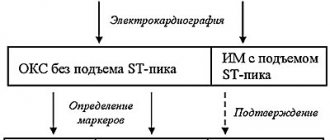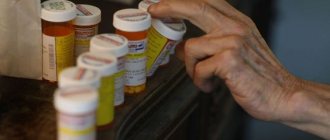Cardiovascular diseases are in leading positions in the sad ranking of ailments that can lead to human death. This is evidenced by statistics from medical institutions around the world. In Russia, over the past two years there has been a trend towards a decrease in cases of cardiac pathology among the population.
Disease prevention and early diagnosis played a major role in the positive dynamics. Proper nutrition, balanced exercise and a healthy lifestyle in general also had an impact. Russian citizens are trying to pay more and more attention to these requirements for a healthy life.
Anyone who cares about their health can prevent heart disease. After consulting a doctor and a medical analysis of the general condition of the body, you can select a personal set of exercises. In this case, it is worth taking into account the presence of concomitant ailments and heredity. In any case, the principles of proper preventive therapy remain the same.
Causes of vascular and heart diseases
You can prevent malfunctions in the “engine” of the human body by finding out the reasons for their occurrence. Emotional overload usually ranks first in statistics. Mental trauma, fear, stress can cause an attack even in healthy people who are not susceptible to any illnesses.
It is also worth paying attention to infectious pathologies. Many pathogens cause heart failure and damage the heart valves. Category A streptococcus, enterococcus, Staphylococcus aureus and some other bacteria negatively affect the circulatory system.
The nasopharynx often becomes the initial habitat of pathogenic microorganisms. In case of inadequate and incorrect treatment, it is from this that bacteria spread throughout the body. For this reason, cardiologists and ENT doctors strive to act together to prevent sad consequences and help the patient in a timely manner. Separately, doctors note endocrine system disorders, including disruptions in the functioning of the thyroid gland and diabetes. Pathologies of the thyroid glands can lead to abnormalities in the functioning of the heart, arrhythmia, and rapid heartbeat.
Against the background of diabetes, pathologies of the heart and blood vessels often appear and proceed unnoticed and without pain, which leads to undesirable consequences. As a result, late diagnosis complicates treatment. People with diabetes need to pay special attention to their blood vessels and heart. They should be required to undergo examination by a cardiologist once a year. This will prevent the development of the disease and significantly improve the quality of life.
Factors that increase the risk of the occurrence and development of cardiac pathologies include the following:
- unbalanced diet (consumption of store-bought sauces, passion for carbonated drinks, fast food);
- bad habits (addiction to alcohol and drugs, smoking);
- bad ecology;
- heredity;
- sedentary lifestyle (long periods of lying down and sitting).
Impaired blood flow caused by a sedentary life and lack of sports activities often become the cause of the development of ailments. They are also aggravated by poor diet and bad habits. These factors can be eliminated from your life. By eating right, eliminating bad habits and leading an active life, a person will minimize the risk of disease.
The medical doctor offers to make an appointment with a cardiologist. A full range of diagnostics and treatment of heart diseases in Tula. Tel. for appointment +7 (4872) 39-30-33.
List of diseases of the cardiac system
The main pathologies that can affect the heart muscle include the following.
Treatment of heart disease is best carried out in Germany https://emex-medical.ru/clinics/lechenie-serdtsa-v-germanii/ Coronary heart disease, it occurs due to severe oxygen starvation when the coronary arteries simply cannot cope with their task . Typically, disorders are provoked by the formation of atherosclerotic plaques on the walls of blood vessels, which narrow the lumen of the vessel.
Arterial hypertension and hypotension. These disorders can be triggered by many reasons, ranging from alcohol consumption to vegetative-vascular dystonia.
Myocardial diseases. They are also caused for various reasons, including due to infection and insufficient oxygen supply to the muscle. In most cases, myocarditis is asymptomatic and ends with complete recovery. If there are clinical manifestations, the prognosis is worse: recovery occurs only in half of the cases, the rest develop dilated cardiomyopathy. Myocarditis is also dangerous due to rhythm disturbances, which can lead to sudden death.
Endocardial diseases. In most cases, endocarditis is not an independent disease, but is a partial manifestation of other diseases. Subacute bacterial endocarditis, most often caused by streptococcus, is of independent importance. In this case, inflammation is localized on the inner lining of the heart muscle.
Pericarditis , which is characterized by an inflammatory process of the serous membrane of the heart. As a result, excessive accumulation of fluid occurs in the pericardial area, as well as the formation of fibrous strictures, which leads to difficulty in the functioning of the organ.
Defects of the heart muscle. They arise due to a malfunction of the valves, when the heart cannot retain blood and makes a reverse ejection. The defect can be congenital or acquired. Heavy physical activity, inflammatory processes and a number of other reasons can contribute to this. Heart failure. This is a syndrome in which the heart is unable to meet the metabolic needs of the body due to a violation of its pumping function, or does this by increasing the work of the ventricles.
In addition to problems with blood pressure, excess body weight, alcoholism and smoking, a tumor can also become a factor in the development of heart disease. Oncology can be localized in any part of the heart muscle, which can cause the development of several pathologies at once.
Symptoms of heart disease
You can suspect that you have heart problems if you have the following symptoms:
- the appearance of shortness of breath and lack of oxygen even with little physical effort;
- constant feeling of weakness and low endurance;
- the appearance of a dry cough without any reason in the form of respiratory diseases;
- systematic acceleration or deceleration of the heart and breathing rhythm;
- a feeling of suffocation and strong constriction in the chest during physical activity, this is usually how ischemia manifests itself;
- the presence of a dull aching pain in the chest and liver;
- swelling of the lower extremities, especially in the evening;
- unconscious desire to raise the upper body in a horizontal position to facilitate the breathing process;
- persistent sleep problems, including insomnia;
- back pain, even when at rest.
Treatment of heart diseases
During the initial examination, the doctor collects anamnesis, listens to all complaints, measures blood pressure, pulse, and pays attention to the intensity of breathing. If, during an in-person examination, there are suspicions of possible heart problems, the patient is prescribed examinations.
It is necessary to take blood and urine tests.
An ECG is required, with physical activity if necessary. It is carried out using an exercise bike.
24-hour monitoring, echocardiography, and chest radiography are also performed. If there are problems with blood vessels and arterial conductivity, the doctor will prescribe a coronary angiography.
After the examination has been carried out and an accurate diagnosis has been made, it is necessary to strictly follow all the recommendations of the treating doctor, adhere to a diet and take appropriate medications.
If drug treatment does not lead to the desired result or there is a pathology that cannot be treated with conservative methods, the patient may need surgery. For example, if there is a congenital heart valve defect or a rhythm disorder that cannot be treated with medication, the valve can be replaced with an artificial one, and an implanted pacemaker can maintain a normal rhythm.
Source
Prevention of heart and vascular diseases
Preventing cardiovascular disease will help prevent heart disease. To do this, we need to know what our heart does not love, but what it responds to with gratitude.
First, let's talk about what the heart likes.
Balanced diet
In the prevention of cardiovascular diseases, you must first pay attention to nutrition.
Eat wholemeal bread, which is high in fiber. Fiber collects cholesterol and removes it from the body. This means that atherosclerotic phenomena will manifest themselves much more slowly.
Eat more vegetables and fruits, they contain important microelements and vitamins for the heart.
It is better to avoid animal fats and consume vegetable oil. The best oils are olive and linseed.
Don't forget about sea fish and seafood, which are rich in omega-3 fatty acids and Q-10. These substances help prevent atherosclerosis.
In order to prevent cardiovascular diseases, it is good to spend fasting days, for example, eat only vegetables, fruits or drink kefir during the day.
Eat four times a day, try to eat dinner no later than three hours before bedtime.
Physical activity
Taking daily walks is beneficial for cardiovascular health. If you don't have enough time for walks, walk on the way to and from work. You need to leave the house early and try not to walk along busy highways. It's good to walk through parks where you can get some fresh air.
Exercise regularly. They should be moderate and varied. They should be increased gradually.
Now let's talk about what the heart reacts badly to, what it doesn't like?
A large peak in cardiovascular diseases, strokes and heart attacks occurs at the beginning of the summer season. People come to their dachas and try to immediately redo everything. We must not forget that everything can never be completely remade. It is better to do it at a slow pace, but you will avoid dire consequences. All of the above can be recommended to people who decide to do the repairs themselves.
Pay attention to your dream. Sleeping for a long time is bad, but lack of sleep is also harmful. A major risk for cardiovascular disease is working night shifts or overtime.
Avoid stress and conflict situations. You need to try to avoid them altogether or treat them with a bit of humor. Think about the fact that there are no ideal people, and we are all so different.
Monitor your blood pressure. High blood pressure can lead to a heart attack; the load on the heart increases significantly. Every home must have a pressure measuring device. The choice of tonometers is now really wide, you can choose one for every taste and price.
Pay attention to salt, try to salt your food less, but it is not recommended to completely give up salt.
Pay attention to your weight. Try to lose excess weight. Excess weight very often leads to increased blood pressure.
Monitor your cholesterol levels, and don’t forget to donate blood for lipid levels. If the indicators are elevated, try to take action and change your lifestyle and diet.
Ask your healthcare provider for a blood clotting test once a year. Viscous blood does not pass through the vessels well, blood microcirculation is disrupted. And to make the blood less viscous, don’t forget about lemon and cranberries. Aspirin also thins the blood; doctors prescribe it in small doses. This way you will be protected from thrombosis.
Magnesium and calcium deficiency decreases significantly with age. This is especially dangerous for women, as hormonal changes occur in their bodies. A deficiency of these important minerals leads to cardiovascular diseases and osteoporosis. To prevent cardiovascular diseases, every woman over 40 years of age should take magnesium and calcium supplements.
Such simple prevention of cardiovascular diseases will definitely help you cope with serious ailments.
You need to take care of your health; for us it is priceless. Take preventative measures and lead a healthy lifestyle.
Don’t forget that our heart is such a vulnerable and delicate organ!
Source
The first signs of illness
Chest pain and discomfort behind the sternum are not the only sign of vascular and heart diseases. You can notice deviations in the functioning of the heart and blood vessels using other signs if you carefully monitor the condition of the body.
The main manifestations of the disease also include:
- arrhythmia that appears in the absence of negative external factors;
- shortness of breath that occurs with obesity, physical activity of an untrained body, excessive overload, the development of vascular and heart diseases;
- swelling, in which there is an accumulation of fluid (usually in the lower extremities towards the end of the day);
- regular headaches, accompanied by increased blood pressure and increased heart rate;
- pathological changes in skin color - pallor in the area of the nasolabial triangle, cyanosis, and also against the background of swelling of the legs.
If such signs appear, you must immediately contact a medical facility for help. You can refute or confirm your fears after an appointment with a specialized physician. For diagnosis, examination, listening to the heart, taking an anamnesis, taking EC and measuring blood pressure is usually sufficient.
Preventative therapy and support for body health
Anyone can prevent the development of vascular and heart diseases. Comprehensive programs that include diets, exercise, timely treatment of infectious pathologies and protection from emotional overload will be of great benefit. Exercise and diet will not save you from poisoning with toxic substances or genetic predisposition. However, they will help stop the filling of the blood with cholesterol and prevent the growth of plaques on the walls of blood vessels.
First of all, you should optimize your diet. Classic diets are quite suitable for fighting diseases. Spicy, salty, smoked, fatty, floury, and fast carbohydrates should be excluded from the menu. You will need to reduce the consumption of strong tea and coffee, and store-bought condiments (ketchup, mayonnaise) and sauces should be abandoned altogether.
For the prevention of diseases, fresh vegetables, seafood, fruits, hard cheeses, and dairy products are recommended. Wheat and oatmeal porridge, cabbage, bananas, and nuts will saturate the body with essential microelements.
Proper physical activity is an indispensable condition for disease prevention. No need to start with cross-country running and marathon running. To maintain health and improve immunity, visiting the gym, swimming pool and walking at the same pace in the fresh air is enough. Such activities should be enjoyable and become a pleasant habit. At the initial stages, sports activities are best done under the supervision of a trainer.
It will be useful to protect the nervous system from the effects of emotional stress. The rhythm of modern life is such that it is impossible to completely eliminate stressful situations. However, it is possible to mitigate the harm from their effects. To do this, you should get enough sleep, have a good rest, and be in nature more often.
A prerequisite for the normal functioning of blood vessels and the heart is the timely disposal of foci of infectious diseases. Inadequate or delayed treatment of influenza and sore throat can cause abnormalities in the functioning of the body.
Regular comprehensive research: why it is useful
Prevention of heart and vascular diseases does not always protect against the influence of concomitant ailments and negative external factors. Treatment of any disease is best started in the early stages. In such situations, it will not cause unwanted side effects and will bring maximum positive effect.
Pathological conditions associated with malfunctions of the heart and blood vessels can be identified through examination. You need to undergo it in a medical facility at least once a year. The following will help identify the first symptoms of disease:
- electrocardiography, i.e. determining the correct rhythm of heart contractions;
- Doppler ultrasound, in which ultrasound makes it possible to analyze the functioning of the heart and its valves;
- daily monitoring of pressure and ECG, allowing to identify the occurrence of arrhythmia and increased pressure during exercise and at rest throughout the day.
People at risk should be especially careful about their health. They need to visit medical specialists every five to six months and undergo a comprehensive examination.
Monitoring changes in the body and a healthy lifestyle will help avoid the appearance and development of heart and vascular diseases. A person will be able to lead a full life, maintain and improve its quality.
Cardiovascular diseases: prevention
Remember, disease is easier to prevent than to treat: in 80% of cases, premature heart attacks and strokes can be avoided.
Check if you and your loved ones are at risk. The answers to the questions in this questionnaire will help you set your priorities correctly and, if necessary, adjust your lifestyle. Remember, if necessary, you can always contact a cardiologist and select a treatment regimen.
1. HOW OLD ARE YOU?
| Men | Women | |
| Up to 30 years old | 1 | 0 |
| 30 – 40 years | 3 | 2 |
| 40 – 50 years | 5 | 4 |
| 50 – 60 years | 6 | 5 |
| Over 60 years old | 7 | 6 |
As you age, your risk of cardiovascular disease increases. Improve your health at a young age and maintain it throughout your life.
2. DO YOUR RELATIVES HAVE CARDIOVASCULAR DISEASES (hypertension, coronary heart disease, myocardial infarction)?
| Number of points | |
| Did not have | 0 |
| For relatives aged 40 to 50 years | 1 |
| Have 2 blood relatives at any age | 3 |
| Have 3 blood relatives of working age | 8 |
Hereditary predisposition is not a disease! Take good care of your health and you can reduce your risk of developing cardiovascular disease.
3. DO YOU SUFFER from DIABETES OR CHRONIC RENAL FAILURE?
| Number of points | |
| Yes | 10 |
| No | 0 |
Having diabetes and kidney disease are associated with an increased risk of developing cardiovascular diseases. By preventing or treating diabetes and kidney disease, you can reduce the risk of developing atherosclerosis, hypertension, and coronary heart disease.
Read also: Myocardial infarction: symptoms and first aid
4. DO YOU SMOKE?
| Number of points | |
| No, I don't smoke | 0 |
| Yes, up to 10 cigarettes per day | 3 |
| Yes, more than 11 cigarettes/day | 8 |
Tobacco is very harmful to health in any variety: cigarettes, cigars, pipes or chewing tobacco, etc. Passive smoking is also dangerous. The risk of developing a heart attack or stroke begins to decrease immediately after stopping the use of tobacco products, and after a year can decrease by 50%.
5. IS YOUR LIFE STRESSIVE?
| Number of points | |
| No | 0 |
| Periods | 4 |
| Yes | 6 |
Emotional turmoil and stress increase the risk of developing cardiovascular diseases. If a person is already under stress, he needs to take care of physical release. In this case, exercises and exercises (walking in the fresh air, running, swimming, etc.) can help.
6. ARE YOU EATING RIGHT?
| Number of points | |
| Yes, I follow a healthy diet every day | 0 |
| I eat meat, fats, flour, and sweets in moderation. | 1 |
| Sometimes I eat more meat, fats, and sweets than I should | 3 |
| I don't restrict myself in nutrition | 7 |
To maintain a healthy cardiovascular system, a balanced diet that includes plenty of fruits and vegetables is essential. Avoid foods high in fat, sugar and salt, and maintain a normal body weight and avoid excessive alcohol consumption.
7. WHAT IS YOUR WEIGHT? Normal weight for your height can be calculated using the formula: Weight = Height (cm) – 100
| Number of points | |
| No excess weight | 0 |
| Exceeding up to 5 kg | 2 |
| Exceeding up to 10 kg | 3 |
| Exceeding up to 15 kg | 4 |
| Exceeding up to 20 kg | 5 |
| Exceeding more than 20 kg | 6 |
First of all, excess weight affects the cardiovascular system. Atherosclerosis, hypertension, ischemia, and myocardial infarction are very common companions of obesity.
8. DO YOU DO PHYSICAL EXERCISE?
| Number of points | |
| Yes, definitely | 2 |
| No, I'm not a sports person | 6 |
To maintain a healthy cardiovascular system, regular physical activity is necessary, at least half an hour daily; Physical activity for one hour several times a week helps maintain a healthy weight.
9. HAVE YOU NOTICED AN INCREASE IN YOUR BLOOD PRESSURE (including a one-time increase) MORE THAN 140/90 MM Hg. ST.?
| Number of points | |
| No never | 1 |
| Yes | 7 |
It is very important to control your blood pressure. Even high blood pressure may not cause any symptoms but can lead to a sudden stroke or heart attack. Check your blood pressure.
10. HAVE YOU NOTICED ANY OF THE CONDITIONS LISTED IN YOURSELF: shortness of breath during habitual physical activity, chest pain during excitement/physical activity, swelling of the lower extremities, increased fatigue, decreased tolerance to physical/mental stress, sleep disturbances?
| Number of points | |
| No never | 0 |
| Yes | 5 |
Even small changes in how you feel can be the first signs of heart disease. Don't wait or be patient - consult a doctor.
11. ARE YOUR CHOLESTEROL LEVELS HIGH?
| Number of points | |
| Yes, upgraded | 5 |
| No | 0 |
If you don't know your cholesterol level, you need to get it checked. Elevated cholesterol levels in the blood lead to the development of atherosclerosis and increase the risk of heart attacks and strokes. It is necessary to control blood cholesterol levels through a healthy diet and, if necessary, proper medications.
TOTAL NUMBER OF POINTS INTERPRETATION OF SURVEY DATA
| Sum of points | Risk of developing cardiovascular diseases | Recommendations |
| More than 43 | Maximum | Urgent consultation with a cardiologist and follow all his recommendations! |
| 30 – 42 | Expressed | Consult your doctor for advice and put more effort into health improvement, prevention and effective treatment. |
| 17 – 29 | Explicit | Consult a doctor for advice and pay more time and attention to your health, get treatment regularly. |
| 5 – 16 | Minimum | Make an effort to correct risk factors for cardiovascular disease. |
| Less than 5 | Absent | Continue your healthy lifestyle and involve your friends and family in it! |
Take care of yourself and your loved ones!









